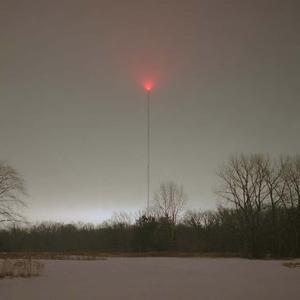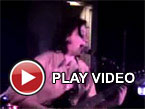Kwaidan, "Make All the Hell of Dark Metal Bright"
 Combining solo artist Neil Jendon on synths, Mike Weis of Zelienople on drums, and Locrian guitarist André Foisy, Kwaidan might almost meet the definition of a supergroup for the post-drone/metal crowd, and it would not be an inappropriate designation. There is a certain grandiose drama throughout this LP, even if the sound is anything but pretentious or bombastic. It feels like a taut, fully developed collaboration from three masters of their respective instruments.
Combining solo artist Neil Jendon on synths, Mike Weis of Zelienople on drums, and Locrian guitarist André Foisy, Kwaidan might almost meet the definition of a supergroup for the post-drone/metal crowd, and it would not be an inappropriate designation. There is a certain grandiose drama throughout this LP, even if the sound is anything but pretentious or bombastic. It feels like a taut, fully developed collaboration from three masters of their respective instruments.
The three-part suite "Three Empty Rooms of Light and Space" does give a certain prog supergroup sensibility to the material, and again that is not entirely off-base.The first part, "Evening Bell," is initially all droning amp noise and dissonant electronics, propelled by a sharp, gunshot like percussion line that slowly is filled in with guitar and keyboards.The two instruments meld together into an electric wall of sound that lumbers onward, propelled by the slow beat before unraveling into fragments of noise.
This is contrasted by the second part, "Gateless Gate," that leads off with tense, motorik percussion driving gentle guitar feedback and noisy keyboards.Everyone’s individual contribution can be distinctly heard, but exist together nicely in a wide open sonic space, like a modernized, metallic glistening reinvention of Neu!’s "Hallo Gallo."The suite closer, "Ostension," brings it back to a slow, throbbing rhythm and shimmering guitars, initially ambient but more textural and dissonant in its conclusion.
Each performer both stands alone impressively and mixes beautifully with the other two.On "Space as Support," Weis' complex percussion, Jendon's delicate synth pads, and Foisy's careful, disciplined guitar work sound perfect alongside each other, but each being distinct from the other.Too often within these more abstract type works, the instruments blur together into an indistinct morass of sound, but not once does that happen on the album.
Jendon's electronics and synth are less traditional and more obtuse on the long "The Sound of This Bell." They do stand out nicely. however, next to Foisy's more traditional sounding guitar playing.Even when everything blends into a slightly more chaotic, dissonant bit of noise, never does it sound messy or indistinguishable.
While there is a distinct heaviness and density to Kwaidan's output, I never found it to be oppressive or overly dark.Like the fog laden cover art, there is a progressive rock tinged haze that enshrouds this album without obscuring it, and the final product is far more complex and compelling than some also-ran project that gets thrown into the (unfortunately) ever expanding, generic"drone" category.
samples:
 



